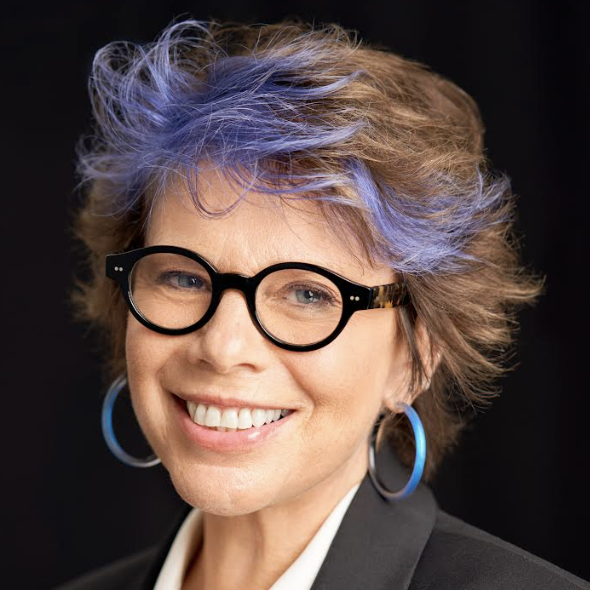AEDP Magnificent ‘9+1’ Affective Change Processes
Presented by Diana Fosha, PhD and Experiential Assistants
Friday – Monday, November 1 – 4, 2024 | 10:30 am – 3:00 pm Eastern Time
Prerequisites: AEDP Advanced Skills Courses are for licensed practitioners who are Level 2 or above; See details further below.
Course Description:
AEDP has always been a multifaceted transformational therapy. Naturally occurring, adaptive, affective change processes have always been at the heart of AEDP™ Psychotherapy’s healing oriented, radically relational, transformational practice. And, the clinical, practice-based theory of AEDP has also grown: It has expanded, deepened and been put to the test hundreds of thousands of times in transformational moments between patients and us, their AEDP therapists, worldwide.
With the advent of empirical research into AEDP Psychotherapy effectiveness (Iwakabe et al, 2020), the need to systematize, codify and measure outcome and process in AEDP therapy has led to the development of what we have come to call The Magnificent 9 +1 Affective Change Processes Scale. This scale describes what makes AEDP, and attempts to capture what makes it effective for so many patients. These discrete AEDP affective change processes provide the scaffolding for AEDP clinical practice and transformational theory. They in essence operationalize and account for how change takes place in AEDP Psychotherapy.
This course explores 9 affective change processes specific to AEDP, as well as the mystery “+1”. The 9 affective change processes are: i. Transformance detection & affirmation of the self; ii. Noticing & seizing a moment of change for the better; iii. Undoing aloneness; iv. Facilitating access to bodily-based experience; v. Working to dismantle defenses; vi. Dyadic affect regulation; vii. Experientially processing core affective experience, aiming toward a corrective emotional experience; viii. Broadening & building transformational experience, i.e., metatherapeutic processing; ix. Promoting integration and processing core state experiences.
This Advanced Skills training is in keeping with the AEDP model: from experience comes insight and meaning. Insight and meaning are incredibly important and indeed transformational, but understanding follows from experience. Which is why we are teaching the fundamentals of AEDP transformational theory at the end of your advanced AEDP training, not at the beginning. Now that you have had so much training in AEDP and so many experiences with and in AEDP, this is an opportunity to reflect and integrate and experience (via the realization affects) that a new and deeper understanding has the potential to re-organize everything that came before it, and thus can lead to more rounds of the transformational spiral.
Course Objectives:
- Describe the nine essential components of AEDP Magnificent 9 + 1 affective change processes
- Recognize the different ways in which early relational learning shows up in the here-and-now experience of the client.
- List the factors that foster positive neuroplasticity and demonstrate how they can be put to good use in psychotherapy.
- Explain and demonstrate how AEDP techniques of undoing aloneness can be used to disconfirm early learning and promote a corrective relational experience in therapy.
- Understand the essential elements needed to promote emotional processing and working toward a corrective emotional experience and how to make use of them in therapy.
- Explain and demonstrate how metaprocessing can be maximized to deepen transformation and the integration of new learning.
- Interpret and unpack the “+1” Unmasked: The Spirit of AEDP
Meet the Presenter

Diana Fosha, PhD
Diana Fosha, PhD, is the developer of AEDP™, a healing-based, radically relational, transformation-oriented experiential psychotherapy. She is the Founder and Director of the AEDP Institute.
For more than two decades, Diana has championed a scientific foundation for AEDP, a therapeutic approach that focuses on healing trauma, repairing attachment wounds, and rekindling vitality. Her work integrates positive neuroplasticity, recognition science, and dyadic developmental research into experiential and transformative clinical practice. Her most recent work focuses on promoting flourishing as a seamless part of the AEDP therapeutic process of transforming emotional suffering. Drawing on affective neuroscience, attachment theory, mother-infant developmental research, and research documenting the undreamed-of-plasticity in the adult brain, AEDP exemplifies the integration of scientific research and clinical practice in psychotherapy.
Based in New York City, where she lives and practices, Fosha has been on the faculties of the Departments of Psychiatry and Psychology of NYU and St. Luke’s/Roosevelt Medical Centers (now Mount Sinai) in NYC, and of the doctoral programs in Clinical Psychology at the Derner Institute for Advanced Psychological Studies at Adelphi University and at The City University of New York.
Prerequisites
This is an Advanced Skills Course (not a seminar). Pre-requisites: you must be AEDP Level 2 or above meaning:
- you must have completed Immersion, and
- you must have also completed either Essential Skills (ES1), Core Training, or the equivalent in AEDP supervision (30 hours Small Group or 20 hours Individual)
If you have a question about the relevance of this course for you and/or your eligibility for this course please contact admin@aedpinstitute.org with your credentials before registering.
This course counts toward AEDP Certification:
This course counts toward AEDP Certification. Any five modular Courses are considered the equivalent of any 10-Day Retreat-Style Course. Level 3+ AEDPers are encouraged to participate to refresh AEDP skills and reconnecting with faculty and community. Learn more here.
Course Dates and Times
Location: Presented Live, Online
Dates: November 1 – 4, 2024
Time: 10:30 am – 3:00 pm Eastern Time
Registration and Course Fee
- $649 Member Price (must be logged in to register)
- $679 Non-Member Price
ADA Accommodations | Attendance | Refund Policy | Questions
Disability Access: If you require ADA accommodations please contact Marilia Rodriguez, admin@aedpinstitute.org or call 813-553-1294 thirty days or more before the event so we can be sure to accommodate you.
Attendance and Makeup Policy & Refunds:
Questions:
Course and all customer service related questions:
Please contact Customer Service Administrator
Marilia Rodriguez
admin@aedpinstitute.org
813-553-1294
